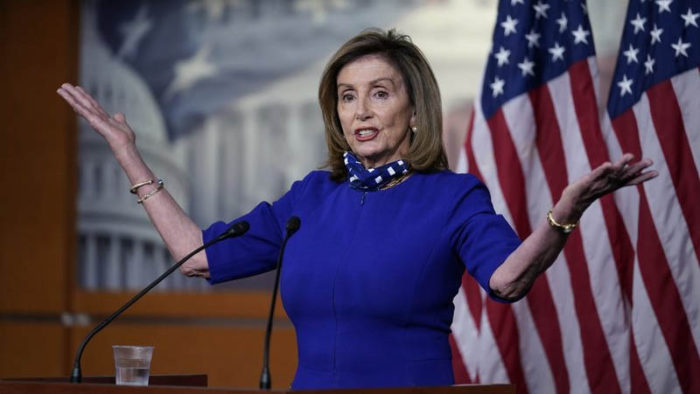Pelosi, said she would not bring up for a floor vote a bill by House Judiciary Committee Chairman Jerry Nadler to increase the size of the Supreme Court from nine justices to 13. Her response was quick and decisive, as Nadler and the bill’s few co-authors had just introduced the bill earlier in the day.
Alas, this was not necessarily a case of Pelosi standing on principle: She specifically said she had no firm opinion on the merits of the proposal and that “it’s an idea that should be considered.” Instead, the speaker merely wants to punt the idea to the new commission on court-packing created by President Joe Biden, which is obviously intended to give a patina of legitimacy to what is in truth a wholly abominable scheme.
Pelosi is a calculating politician. She can read polls. She knows that by as much as a nearly 2-to-1 margin, the public opposes the very idea of court-packing. She knows that the same public that gives Congress only a 35% approval rating consistently gives the Supreme Court a clear majority of support and thus doesn’t trust Congress to monkey with the court’s makeup. She knows it would be politically suicidal for her slim Democratic House majority to push court-packing now, or at least until a bogus commission has worked with a compliant media to change long-standing public opinion on the subject.
The public is right, though. The idea of increasing the size of the high court is inherently part of an attempt to grab political control of the third branch of government by flooding it with new Democratic appointees. It would be a blatant power grab by a party that doesn’t believe there should be any curbs on its political agenda. As even liberal Supreme Court Justice Stephen Breyer warned just last week, the public wants to “trust that the court is guided by legal principle, not politics” but that “structural alteration motivated by the perception of political influence can only feed that latter perception, further eroding that trust.”
Not that Democrats, primarily, haven’t already spent decades politicizing the nomination process for federal courts. From outrageous smears of highly qualified men such as Judge Robert Bork to the first use in U.S. history of filibusters to kill outright nominations that enjoyed majority Senate support to the calumny heaped, without a shred of evidence, against recent high-court nominee Brett Kavanaugh, the Democrats have tried to turn the judiciary into an arena for political blood sport.
Still, they haven’t entirely succeeded. In large part, because the public can see that Supreme Court openings occur somewhat randomly while its size has remained fixed, people have confidence that the court’s daily functions remain at least somewhat inoculated from immediate partisan pressure. In the rough-and-tumble of American politics, the nation’s highest court is a valued exemplar of stability.
Thank goodness Pelosi is politically savvy enough to avoid a head-on assault against the court as an institution. It would be far better still if she wouldn’t give a wink and a nod to the backdoor effort to erode that institutional credibility by way of a commission that isn’t necessary in the first place.


